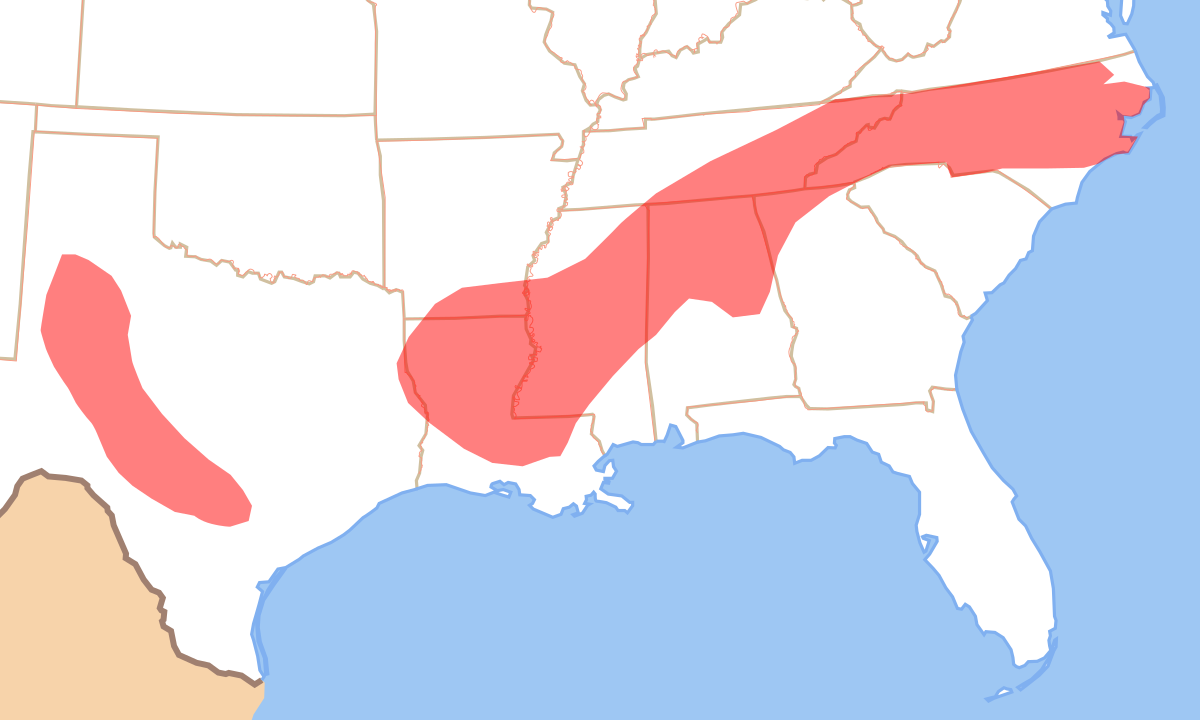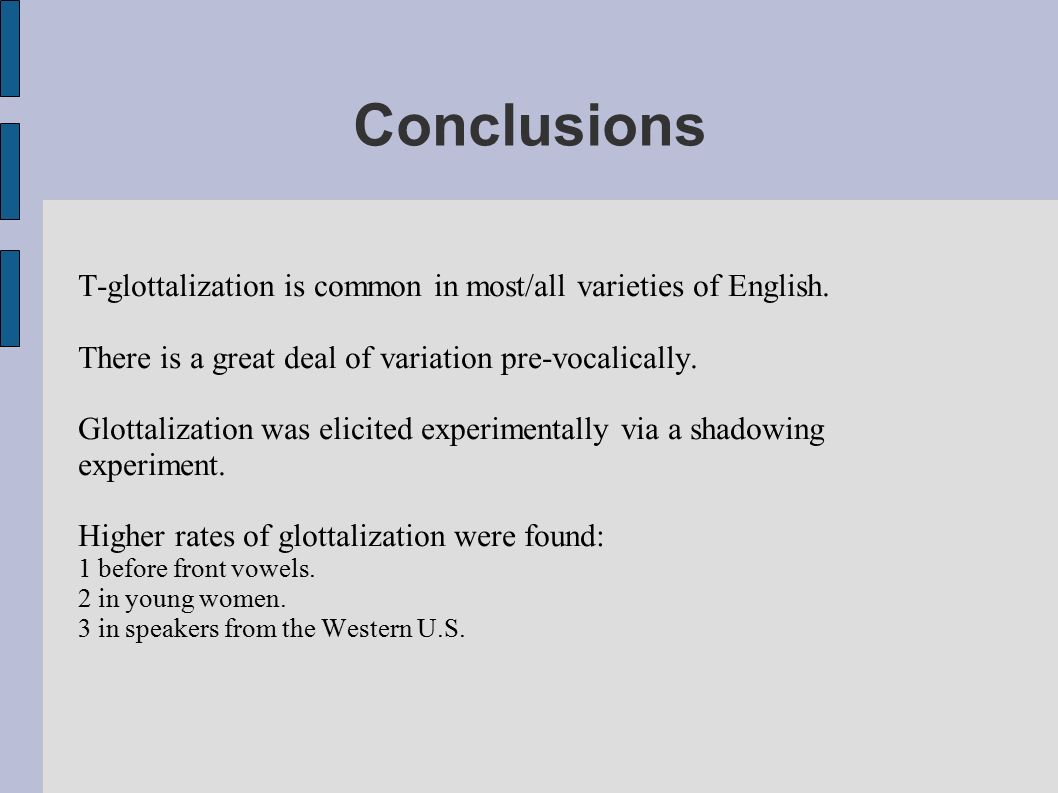T Glottalization

Dropping T's in words like 'kitten,' 'Vermont' and 'important' is a normal speech pattern, and there's even a name for it: T-glottalization!
The glottal stop (more specifically, the glottalisation of “t”) is a feature traditionally associated with male, working-class speakers. But even as far back as 1982, linguist John Wells noticed it. GLOTTALIZATION REFERS TO THE PRONUNCIATION OF /t/ as a glottal stop, Glottalization is a type of lenition in which the oral gesture of a stop is removed. It is a common phonetic evolution for oral stops to develop a glottal point of articulation. Enjoy the videos and music you love, upload original content, and share it all with friends, family, and the world on YouTube.
Two of our listeners wrote in recently to ask about a speech pattern they’d noticed: the habit of people dropping the T-sound in words like “Putin” or “mitten.” They wondered if this was a regional dialect, a generational one, or something else.
Here’s what we discovered.
Buy Now
The phenomenon itself is known as “T-glottalization.” It occurs when a speaker swallows the T sound in a word rather than speaking it aloud. We hear it when words like “kitten” and “water” are pronounced like “KIH-en” and “WAH-er.”
Let’s talk about how this happens, and whether we should expect more of it.
How Does T-glottalization Happen?
First of all, glottalization is a normal thing that people do when they talk. It occurs when our vocal folds come together to stop the flow of air and then suddenly open. If you say “uh-oh,” a glottal stop occurs right after the “uh” and before the “oh.” Try it. You’ll feel a tightness in your throat when you say “uh” that is released when you say “oh.” That’s a glottal stop. (1)
We do this all the time without realizing it. For example, instead of carefully telling your friend “I can’t jump very high,” with an emphasis on the T in “can’t,” you might say “I CANH jump very high.” Instead of saying “start your engines,” with a hard T at the end of “start,” you might say “STARH your engines.”
Without getting into too many linguistic details, we do this because it’s hard to aspirate certain consonants when they fall at the end of a word. We aspirate the P at the beginning of “purse” all day long, but we swallow it at the end of “stop.” We aspirate the T at the beginning of “toy,” but swallow it at the end at the end of “hot.”
T-glottalization Stands Out When the T Is Dropped in the Middle of Words
T-glottalization tends to be more noticeable when it happens in the middle of a word.
For example, a hallmark of British Cockney speech is dropping T’s in the middle of words. Instead of “getting a bottle of water,” you might be “GEH-ing a BAH-l of WAH-er.” Instead of “waiting for a letter,” you might be “WAY-ing for a LEH-er.” (2, 8)

Notice that the T is always dropped on the non-stressed syllable in a word. Take the word “potato.” There are two T-sounds. If you were glottalizing the word, you’d do it on the second T, which falls in the non-stressed syllable (the last one): “po-TAY-oh.”
If you were fully pronouncing the T’s in those words, your tongue would touch the roof of your mouth and the T-sound would pop out with a puff of air. That’s called “aspiration.” Try it by saying “water,” and make sure you pronounce the T. You can feel your tongue touch the very front of your mouth, and a little puff of air that accompanies the T.
Now try glottalizing it, without emphasizing the T in the middle: “WAH-er.” You can feel your tongue hovering right in the middle of your mouth instead.
Pages
- 1
NEW VIDEO: What is a glottal stop?
Do you know about glottalising? Ever heard of the glottal T? Do you know if and when you should use it? In this video, this is exactly what I’m going to help you with.

What is a glottal stop?
I’m making this video for a subscriber, so it’s worth leaving a comment as I could be making a video especially for you.
So, what is a glottal stop? A glottal stop is made when the vocal folds close completely and then, depending on whether it is followed by another syllable, they release apart suddenly, letting out a burst of sound. It is similar to when clearing your throat or coughing, except that it is slightly gentler.
In British English, you hear many speakers using it to replace a T sound, but they tend to do this in one of two situations:
End of a word
Firstly, at the end of a word, as in:
- that hat hot
Part of a weak syllable
Secondly, as part of the weak syllable. If you're not sure what I mean by weak syllable, here’s a link to another video that I made about syllables.
So in a word like 'water', the ‘ter’ is the weak syllable, and because the 't' is part of that syllable, some British English speakers would glottalise it, so 'water' becomes 'water'. It's the same for 'better' and 'letter'.
And in a word like potato the first ’t’ is part of the stressed syllable, so it would be pronounced as a 't', but the second ’t’ can be a glottal - 'potato'.
Should I use the glottal stop?
Now, it is neither correct or incorrect to use a glottal stop, because we have such a broad variation of accents in the UK, and they use it to varying degrees.
What is true, is that the more passionate or clear a speaker needs to be, the more likely they are to pronounce these words with ’t’ sounds, so ‘that’ becomes ‘that’, and ’better’ becomes ‘better’.
Do RP speakers use the glottal stop?
It is also true, that pronouncing a ’t’ in these positions is often associated with RP speakers and historically with the middle and middle-upper classes. Nowadays, glottalising is much more widespread, even among RP speakers, although they tend only to use it at the ends of words.
I can’t tell you what you should do. Personally I like pronouncing the ’t’ sounds in these positions, although I glottalise from time to time, especially in more relaxed circumstances.
So, I hope that answers the question about what is a glottal stop. Do you want to start working on your pronunciation? Click on any of the free training resources below to get you started:
Already got these?
T Glottalization Example
Why don't you really step up and master your pronunciation of British English...
Liked this video?
Get a twice-weekly pronunciation lesson
EVERY WEDNESDAY and SUNDAY
T Glottalization In American English
straight to your inbox!
T Glottalization In American Accents
Your email is 100% safe with us.